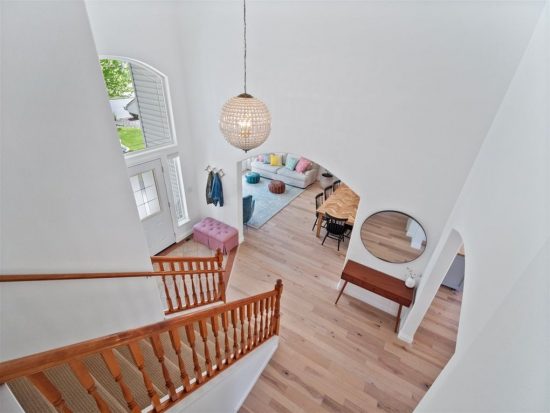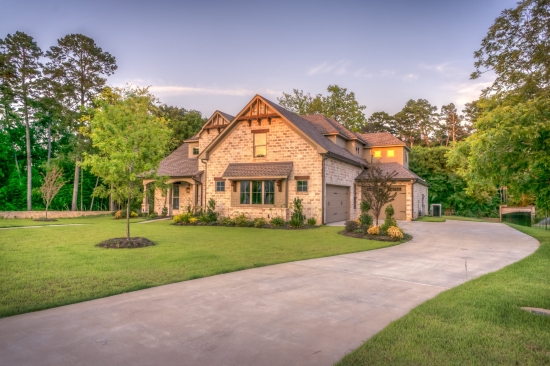21
This is a collaborative post. All opinions are my own.
We've all been staying at home more since the beginning of the pandemic, so it makes sense that we've been consuming more power. Indeed, according to statistical reports published by the renewable energy company Arcadia, for 1 in 3 Americans, energy costs have increased by 10% or more this summer. Whether you’ve been unemployed, on furlough, or working from home, you’ve been relying on electricity, water and gas during the daytime, at hours when you would have otherwise been elsewhere. Arcadia also points out that the increase will happen on top of the usual power peak in summer. Cities with denser populations such as New York and Philadelphia are expected to get hit hardest, with a cost increase of up to 15%. And if you've already been struggling to make ends meet since March, an extra 15% on your bill can be significant. If this applies to you, be sure to see if your power company offers an assistance program that will allow you defer bills or get a discount. But no matter what your financial situation is, it's smart to look forward to the future. As long as COVID-19 remains a threat, the home-based trend will not go away. So focus your attention on solutions to cut down your future energy bills. Here are ten common reasons for high energy bills.
1. The house is big
Homeowners love a big house. Most of us look at tall ceilings, extra square footage, and open concept layout as positive things. However, with that comes increased costs to keep the house heated or cooled down, depending on the season. One of the first things we noticed after we moved is how much we're saving on our energy bills now that we've downsized from our old house (above) with 2400 sq ft and lots of tall ceilings, to 1300 sq ft with more closed off rooms. We're saving over 25% on energy costs, simply by moving into a smaller property. And honestly, our small home is cozy and liberating (at least for now!). Besides reducing our energy costs significantly, it's also lifted the burden of how much we have to clean and maintain. If downsizing is something you've been considering, lower energy bills will be a nice side benefit. And if you're happy with your house and have no desire to move, try shutting doors and closing window treatments in unused rooms so you're not wasting energy on keeping them a comfortable temperature...when you're not even in there.
2. You don’t consume mindfully
There is no denying that staying at home increases our power needs. This pandemic situation has a foreseeable and logical consequence on our energy bills. However, that doesn’t mean that you can’t make a difference in the long term. Bad consumption habits can pile up unnecessary waste. Adapting your energy consumption mindfully can make a huge difference--as much as 15% on your energy bills. Here are common types of thoughtless consumption at home:
- You leave the water tap on when you brush your teeth
- You take a long, hot shower before bed
- You leave lights on during the day instead of utilizing natural light
- You don’t pay attention to peak energy-use times
- Your electric devices are always plugged in, even when you don't need them
- You leave the lights on when you're out of the house
And there are many other little things that can add up. See if adjusting any of those behaviors can make a difference.
3. Your provider is expensive
Not all energy providers have equal services and prices. Most compete on price per location – which means that depending nowhere you are, you may need to switch to find a better deal. Complex plans and contract terms can also influence your costs. Constellation, for instance, stands out for its competitive prices and transparent terms, making it easier for customers to know how much they’ll end up paying. On the other end, other energy providers use variable rates across multiple locations and don’t safeguard rates for customers, making bill costs high and unstable. You could be wasting a lot of money with a provider that doesn’t get you the best rate for your consumption. It’s also a good idea to look for green energy providers, as these providers may be able to keep costs to a minimum. A couple phone calls and a little comparison shopping could really pay off.
4. You haven’t jumped onto the sustainability bandwagon
Most households assume that renewable energy solutions are not suitable to support their power needs. But that may not be true! Off-the-grid accommodations can supply their energy using a generator and sources of renewable energy, reducing their energy consumption in the process. Suburban and urban homes can also benefit from professional solar panel installation. Expert Iowa Solar says that, on average, customers can save over $1,100 per year on electricity bills with a system size of 6 kilowatts. However, savings will depend on your location (a sunny town in California will have abundant solar energy compared to a cloudy town in Washington). If you live in a state that has a Solar Renewable Energy Credit program, you can earn credit for the energy your panel produces. Typically, credits have a resellable value so that you can make money too! Even if you don't install full solar panels, think about using solar exterior lights, which are a smart and easy way to take advantage of solar energy to reduce your electricity bills.
5. Your home isn’t well insulated
Insulation plays a huge role in your energy bills. Most people tend to think of insulation problems in terms of windows or under-roof insulation. However, your home loses heat in winter (or fresh air in summer) in many ways! Something as simple as a crack on your façade wall or damaged siding panels could let the air through. Another common place that most people forget about is doors. If your door is cold to the touch, chances are that the door frame lets too much air through. By tackling these issues, you'll be improving your house's energy efficiency--and improving your curb appeal while you're at it. For example, installing new siding panels could bring an additional insulation layer, and a new door can give your entrance a tighter seal (and a fresh new look).
6. You’ve got energy vampires
Energy vampires are those appliances that love to suck up all your power even when they’re not running. Typically, idle gadgets are the silent enemies that affect your energy bills. Did you know that they can waste up to $10 billion in energy every year? You need to identify those vampires and learn to manage them accordingly. In the kitchen, the microwave and the coffee makers are always hungry for energy, especially if they have a clock display. The fridge and freezer can’t be easily unplugged during the day. However, if you don’t remove build-ups inside the appliance, they use excess power to maintain their temperatures. In the living room, your TV can consume as much as $150 annually on standby. That’s even more if you’ve got a gaming console too! The key takeaway: Unplug devices that can be turned off safely and keep other appliances maintained.
7. You don’t have smart sensors
A smart sensor monitors the temperature inside your home. However, what makes it a smart device, is the fact that it can be programmed to maintain a comfortable temperature in the most cost-efficient method. An individual is more likely to turn the heater or A/C on when they notice that the interior temperature has become uncomfortable. However, by the time you notice that the house is too cold or warm, the energy expenditure to address the situation can be significant. On the other hand, a sensor can spot minor discrepancies and act rapidly before the interior ambience becomes unpleasant. Additionally, a smart sensor can also collect data throughout the day and compare to other sources of knowledge, such as the weather or appliances in use. If you spend a morning baking, the sensor can turn the heater down to save cost, for instance.
8. The house is too dark
The level of light in our home can have an impact on our perception of temperature. In the winter, your body may find it more difficult to stay warm in a dark atmosphere. In summer, too much brightness could have the reverse effect, and make you feel too hot. Adjusting your window treatments throughout the day can help bring your body’s circadian rhythm under control. In the winter, open up all your window treatments to maximize natural light. In the summer, use blinds that let the light in while keeping the heat out. This will keep your home bright without making it feel uncomfortably hot.
9. You don't have energy efficient window treatments
Speaking of window treatments, another way to significantly reduce your energy bills is to install more energy efficient window treatments. If you have thin, unlined curtains, they aren't doing much. Blinds also allow more energy transfer than shades do. For maximum energy efficiency, go for cellular shades, which use honeycomb shaped cells to trap air for insulation. Another good trick that looks beautiful is to layer thick curtains over shades with a liner. Make sure the shades are fit tight to your window, and pull the curtains closed at night.
10. The indoor air is too dry
Lastly, your indoor air quality can affect your energy consumption. Ideally, your indoor air humidity levels should be between 30% and 50%. If the humidity goes over 55%, your home could become a favorable terrain for mold growth. It also makes the rooms hard to heat in winter. When the air humidity is too low, however, the air becomes too dry. Dry air affects your perception of temperatures. It will feel colder than it is, which means that you need to heat your home more than you otherwise would.
Keeping your energy bills on a budget can be a challenge for stay-at-home families! Simple changes, such as adding a source of renewable energy and introducing more natural light to your interior can help cut down costs. It can take time and efforts to become a mindful energy consumer, but keeping your eyes open for energy vampires, mindless wastes, and house maintenance can make a huge difference.







Thank you for your valuable tips. In addition to the humidity level, it's important to note that dirty air filters can also contribute to increased energy consumption and higher energy bills. Therefore, it is crucial to regularly maintain your cooling system and not overlook the importance of keeping the air filters clean.